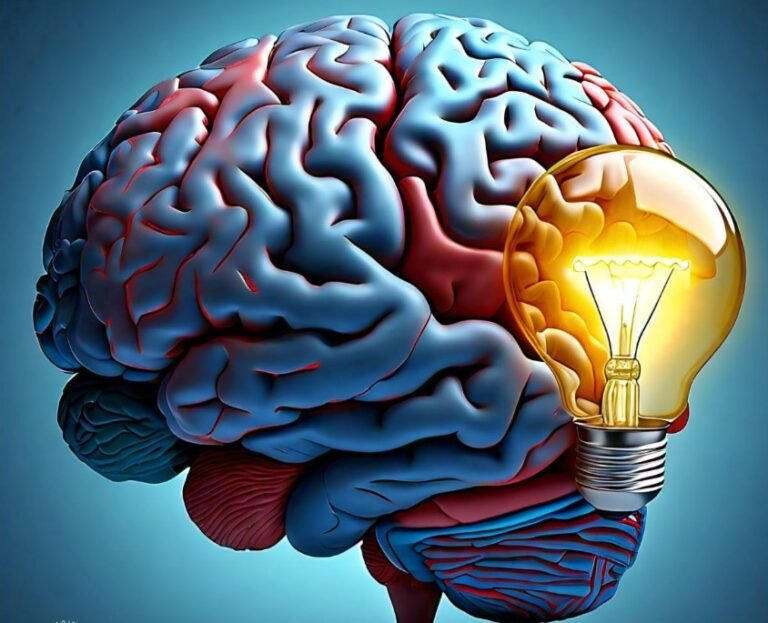Unlocking Wellness: Men’s Mental Health Month and Self-Care

Introduction: Addressing Mental Health for Men
In this blog post, we spotlight the crucial need for heightened understanding of men’s mental health. The significance of Men’s Mental Health Month, an essential period for promoting awareness and prompting action in this critical field, cannot be overstated. As we delve into the multifaceted dimensions of mental health among men, we pave the way for a comprehensive dialogue on this often overlooked, yet vital topic, emphasizing the collective responsibility to elevate it into mainstream discourse.
Understanding Men’s Mental Health Month
Men’s Mental Health Month, conceived as a global initiative, emphasizes increased awareness and requisite action around men’s mental health issues. This annual observance underscores the significance of understanding and addressing men’s mental health struggles. The initiative has its roots in the realization of the vital importance of shedding light on men’s mental health and spearheading change. It encourages collective global endeavors and proactive involvement in campaigns to address and de-stigmatize men’s mental health, ultimately becoming a beacon of hope for many facing these challenges.
The Importance of Recognizing Men’s Mental Health
Underpinning the significance of recognizing men’s mental health is vital. When overlooked, mental health disorders can debilitate men’s daily lives and productivity, acting as barriers to their overall well-being. There’s a pronounced need for practical support for men grappling with these invisible battles. For instance, workplaces implementing mental health assistance programs or friend circles having open, supportive dialogues can provide significant aid to help men navigate these challenges more effectively.
Statistics Surrounding Men’s Mental Health
Numerous studies reveal the grim reality of mental health disorders among men, emphasizing the urgency of addressing this issue. Alarmingly, untreated mental health problems contribute significantly to suicide rates among men, marked as the leading cause of death in various age groups. This prevalence shows the urgent need for more comprehensive mental health initiatives targeting men, more so because the consequences are dire, irreversible, and heart-wrenchingly prevalent.
Common Mental Health Issues in Men
Men often grapple with numerous mental health disorders, which disproportionately impact their lives. Disorders like depression, anxiety, and post-traumatic stress disorder (PTSD) are commonly experienced but often under-diagnosed due to the unique ways they present in men. For instance, depression may manifest as anger or aggression, while anxiety might trigger physical symptoms. Recognizing these varied expressions of mental health issues is crucial for accurate diagnosis and effective treatment.
Stigma Surrounding Men and Mental Health
Unfortunately, stigma and stereotypes associated with men and mental health remain deeply rooted in our society. There’s a harmful and false echo that men should suppress their emotional needs and concerns, which exacerbates men’s mental health issues. Examples are countless, like a male battle veteran suffering from PTSD, who feels pressured to ‘toughen up’, thus perpetuating the cycle of stigma. Such damaging societal constructs underscore the need for destigmatization and education about the reality and severity of men’s mental health.
The Role of Society in Men’s Mental Health
Society’s expectations and norms significantly influence men’s mental health. These societal pressures often discourage men from expressing their feelings or seeking help, perpetuating stigmas around men’s mental health. To improve men’s mental health, a paradigm shift is required in our society. This change can start with recognizing and challenging harmful stereotypes about masculinity, promoting open discussions about mental health, and encouraging men to seek help when needed.
Men’s Mental Health in the Workplace
In the professional realm, men’s mental health often goes overlooked or underaddressed. Workplace practices such as long hours, high stress, and performance pressures can exacerbate existing mental health issues or even lead to the development of new ones. Lack of understanding and support from employers and colleagues, coupled with a persistent stigma around mental health, can discourage men from seeking help. Committed effort to foster a supportive workplace atmosphere, to provide mental health resources, and to reduce job-related stress, can make a significant impact on men’s mental health at work.
The Impact of Gender Stereotypes on Men’s Mental Health
The pervasive role of gender stereotypes exacerbates the mental health crisis affecting men. Stereotypes enforce the harmful notion that emotional vulnerability is synonymous with weakness. This discourages men from discussing their anxieties, fears, and struggles, deterring them from seeking vital mental health support. Dismantling these deep-seated stereotypes is an imperative step toward improving men’s mental health as it nurtures an environment where men feel safe to express their emotions and reach out for help when needed.
Getting the Support: Therapies and Treatments
Therapies and treatments offer a viable path for men struggling with mental health issues. From counseling and cognitive behavioral therapy to medication and holistic approaches, there is a wide array of options tailored to individual needs. Accessible and advantageous, these treatments can help men confront mental health issues head-on, facilitating a journey towards better overall wellness. It’s crucial to remember that seeking help is not a sign of weakness but a testament to resilience and strength, underlining the need for wider acceptance of these treatment options.
Mental Health Concerns Specific to Men
Men experience unique mental health concerns which often go unnoticed or undiscussed, given the common societal norms and expectations. For instance, male postpartum depression, a scarcely acknowledged but equally important issue, can severely impact new fathers, affecting their mental wellbeing and their ability to bond with their newborns. It’s critical to delve into these male-specific problems, broadening the conversation surrounding mental health, and consequently, fostering more informed, holistic interventions and care.
Masculinity and Mental Health: What’s the Connection?
The correlation between perceived masculinity and men’s mental health is profound. Societal standards often equate masculinity with strength and stoicism, fostering a climate where men are deterred from seeking help for mental health issues. This perception intensifies the pressure to conceal emotional vulnerability, further compounding mental distress. Subverting these harmful notions of masculinity can pave the way for men to seek and receive appropriate mental health care without stigma, thus fostering healthier individuals and communities.
The Power of Self-Care in Men’s Mental Health
Self-care holds a crucial role in the upkeep and enhancement of men’s mental health. By ensconcing regular practices of care for oneself, not solely on a physical level but mentally as well, men can improve their overall mental health significantly. Some effective routines might include moderate exercise, mindfulness and mediation, pursuing hobbies, maintaining a balanced diet, and ensuring regular sleep patterns. Personal time and space can act as catalysts in boosting one’s emotional wellness, thus encouraging a comprehensive approach towards handling mental health.
Strategies for Encouraging Self-Care in Men
Encouraging self-care among men requires a multilevel approach. Along with promoting self-care practices, it’s critical to foster a supportive environment in places where men spend time, such as at home or work. This can be achieved, for instance, through promoting a balanced work-life culture and creating spaces that encourage stress relief. Friends and family can also play a crucial role by encouraging them to practice self-care, endorsing activities such as taking time for hobbies, practicing mindfulness, or simply having downtime.
Practical Self Care Tips for Men
For effective self-care, men must integrate a range of practical strategies into their daily routines. Regular physical activities, like walking, swimming, or cycling, can enhance their mental health substantially. Conscious nutrition choices and sufficient hydration are equally important. Seek relaxation through techniques such as deep-breathing exercises, yoga, or meditation. Stay socially connected, receive and provide emotional support from your social circle. Lastly, always ensure to get ample quality sleep and, importantly, not hesitate to seek professional help when an overwhelming or persistent issue arises.
How to Encourage Open Conversations Around Men’s Mental Health
To stimulate more open discussions on men’s mental health, it’s crucial to challenge the existing stigma and promote dialogue. As a community, we can make a significant impact by encouraging honest conversations about mental health in our daily interactions. Inviting men to share their experiences, asking sincere questions, offering non-judgemental support, and emphasizing that it’s alright to seek help are some effective strategies. Let’s make mental health discussions as commonplace as talking about physical health — by breaking down the wall of silence, we can foster a more supportive environment for men struggling with mental health issues.
Focusing on Prevention: Importance of Routine Checkups
Routine checkups play a pivotal role in preventing and detecting mental health disorders early. They offer men an opportunity to address any potential issues before they escalate, fostering proactive attitudes towards their mental health. Too often, men overlook their mental well-being, and regular checkups can help in shifting this paradigm. By prioritizing their mental health and employing preventative measures, men can establish a robust foundation for their overall wellness.
Men’s Mental Health: Steps Towards a Healthier Future
To pave the way for a healthier future, men are encouraged to take proactive steps towards better mental health. Many of these steps involve cultivating resilience, a quality not necessarily innate but that can be built over time through practices such as mindfulness and cognitive-behavioral techniques. Additionally, fostering mental strength, another crucial factor, can be achieved by facing challenges head-on and seeking help when needed, rather than adhering to harmful stereotypes of stoicism. Therefore, prioritizing both resilience and mental strength can significantly impact the long-term mental health of men.
Resources for Men’s Mental Health
There are numerous online and offline resources available to assist with men’s mental health concerns. Men can find solace, advice, and professional help through these platforms, which include websites, hotlines, local support groups, and therapy services. Furthermore, there are various organizations dedicated to promoting men’s mental health and wellness, such as Men’s Health Network and Men’s Minds Matter. They provide initiatives aimed at creating a community of men who support each other’s emotional wellbeing.
Conclusion: Towards a Future of Better Men’s Mental Health
As we move towards a future of improved men’s mental health, the dialogue should continue. Each of us can substantially contribute by acknowledging and addressing these issues more openly. The importance of understanding, awareness, and acceptance cannot be overstated if we hope to improve the state of men’s mental health globally. This task requires ongoing effort, consistent nurturing, and a mutual commitment to change. Let’s prioritize mental health and strive for an inclusive world where men’s emotional wellbeing is recognized, respected, and supported.





